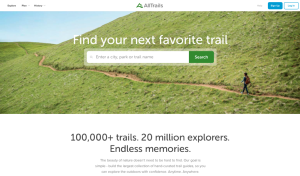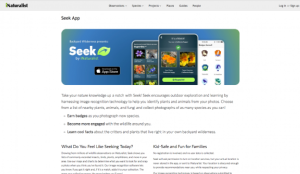General Interest
Back to Top
|
 |
|
Art Education and the Coronavirus (COVID-19)
|
Arts |
|
The Art of Education University (AOEU), an online graduate program for art educators on a mission to "grow amazing art teachers ... at every stage of their career." This mission has become even more pressing during the challenges of COVID-19. Recognizing that many art educators were seeking guidance on how to transition their curriculum to an online format, AOEU launched the Art Education and the Coronavirus (COVID-19) portal. Here, readers will find recordings of six webinars covering the spectrum from "Jumping into Distance Learning" to "Making a Long-Term Plan" (originally recorded in March and April of 2020) and several other distance learning resources. These resources include drawing prompts, art project ideas, and practical and technical tips for online teaching. For educators worried about personal or student burnout, the site also dedicates a section to mental health resources that discuss well-being, mindfulness, and stress management. Each webinar's page also links to some specific resources, but users should note that some of these require an account to access. The bottom of the portal highlights external resources such as lesson plans, guides to remote instruction, and podcasts on related topics. [EMB] |
|





|
|
 |
|
 |
|
SciFact
|
Science |
|
The breadth of research surrounding COVID-19 can be overwhelming, but SciFact helps researchers sift through studies to find relevant existing work. Before using the resource, readers should be aware of a few disclaimers. First, "the tool is not a substitute for the care provided by licensed healthcare practitioners." Second, the system is designed to assess whether scientific research "support[s] or refute[s] a scientific claim," but does not "assess the credibility of the scientific paper itself." Thus, readers should be sure to further investigate each paper they find. The SciFact system itself is very intuitive. Users type a claim in the search bar (for example, "masks reduce COVID-19 transmission,") and the engine returns a list of scientific papers that support or refute the claim. Based on the example search, users would find summaries of seven research papers that support the claim. How does the system generate these results? After it receives an "input claim," the system combs through COVID-19 research for relevant abstracts, identifies relevant evidence within that abstract, and then assesses whether the abstract supports or refutes the claim. SciFact is a project of the Allen Institute for Artificial Intelligence, a non-profit research organization. [EMB] |
|





|
|
 |
|
World Institute on Disability
|
Social studies |
|
Established in 1983, the World Institute on Disability (WID) is a global nonprofit fighting for disability rights. WID focuses on research and policy projects that optimize inclusion, accessibility, risk reduction, and resilience. Additionally, WID is "one of the first global disability rights organizations founded and continually led by people with disabilities." The site houses various resources. For example, under the Digital Systems and Tools tab, readers can download EQUITY: Asset Building for People with Disabilities, an in-depth manual "for people with disabilities who want to move forward economically and bring the system along with them," and Make It Work: Disability & Competitive Employment, which "aim[s] to provide the insights, information and techniques necessary to become powerful, both in employment self-confidence and professional or workplace skills." On other corners of the site, readers will find similar guides geared towards healthcare, disaster planning, and event accessibility. Under the News tab, visitors can locate a variety of resources and readings related to COVID-19. To stay abreast of WID's latest news and projects, sign up for their email list (a link to do so is found on the Home page), or follow WID's social media accounts (also linked on the Home page). [EMB] |
|





|
|
 |
|
The Inside Scoop of Ben & Jerry's
|
Science |
|
Showcasing a sweet side to data analysis, this project profiles Ben & Jerry's nearly 100 ice cream flavors. Lindsey Poulter and Hesham Eissa, both of whom have received accolades in the data visualization community and are self-proclaimed "frequent ice cream consumers," created The Inside Scoop this past summer. Because they reside in different countries (Poulter lives in New York, NY, and Eissa resides in London, UK), the pair wanted to see how geography impacted flavor options. The project also analyzed flavor profiles, popularity, and availability, culminating with "The Complete Ben & Jerry's Flavor Guide." This interactive guide allows users to search by flavor, addition, or country to see what combinations are the most celebrated. One universal finding stands out: "We all scream for ice cream!" Data for the project were collected from the Ben & Jerry's website on July 19, 2020 and was limited to flavors available in pint size. [EMB] |
|





|
|



















